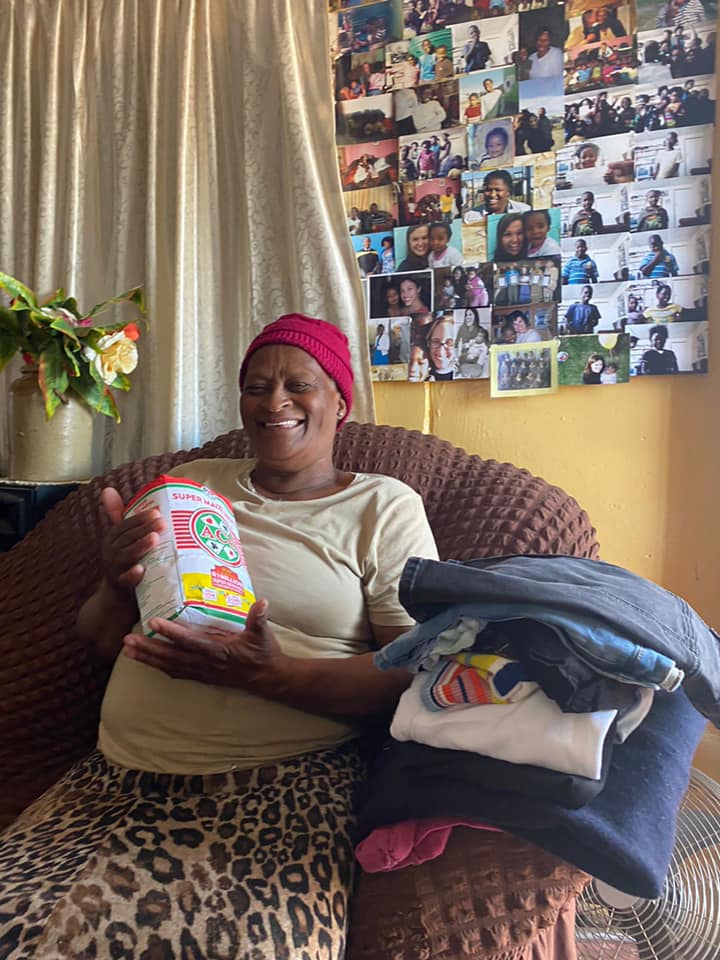By TOKOLOGO LEKOMA
What does happiness feel like to you? Is it that jolt of bliss you get when you dip your toes in the ocean? Or is it when the morning sun can’t wait to greet you through the curtains? Perhaps it is that moment when everyone laughs so hard that tears stream from person to person. Mam’Margaret Ncgancga, who started Home of Joy, is the exact personification of this sensation.
Local Makhanda resident, caregiver and community worker Mam’Ncgancga comes from a line of people who loved helping others in need. Her grandfather and mother, to be specific.
Before we started chatting, I was told that Mam’Ntombekhaya, who refers to herself as Mama’s helper, would also like to join the conversation. An array of topics came up, but Mam’Ncgancga made one thing about Home of Joy abundantly clear. It is “not an orphanage”. It is also not a centre, “and these are not just children”. She explained: “These are my grandchildren, and this is our home.”
For many of us, the pandemic was a blessing and a curse. For the Home of Joy household, it also served as another teachable moment for the children. Mam’Ncgancga and Mam’Ntombekhaya explained that Covid-19 allowed them to discuss personal hygiene, social distancing and the importance of masks in public. Constant supporters of the household for the past 29 years have been Lukhanyiso, DSG and St Andrew’s, the wider Makhanda community and a generous woman named Alex. The Mamas are so grateful to the town for people’s contributions but would also love donations like four bunk beds, heaters, more food, etc.
“Raising a child that is not yours is quite difficult,” said Mam’Ncgancga as one of the younger ones ran across the living room. A collection of memories flooded both women about how the children behaved and interacted with others (or not) before living at Home of Joy. But they paused for a moment. “When you discipline a child, you must remember you are punishing someone you love,” they said, “but you should not be too tough either.” Recurring issues include retraining malnourished children on how to eat, showing neglected children love and care, and dealing with resurfaced parents.
Despite these challenges, Mam’Ncgancga and Mam’Ntombekhaya rejoice in each day because the children are growing, love education and want to improve their situations. Towards the end of our conversation, they add, “Children are special. They need love and a warm home to live in. That’s why we love what we do.”


